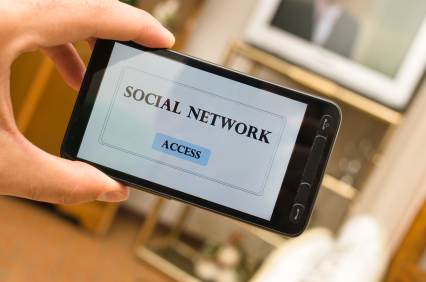#6: Best Of The Mr. Media Training Blog 2013
This post, called “How To Give a Tweet-Worthy Media Interview,” was published on Jan 24, 2013.
The last time you watched a major event on television—a presidential debate, the Academy Awards, the Super Bowl—did you have your smartphone within reaching distance?
Odds are you did. In the age of social media, many of us have become “two screeners” who glance up at our television monitors before looking down at our phones or laptops to see what others are saying about the program we’re watching. We occasionally go one step further, commenting about the show on our blogs, Twitter feeds, and Facebook pages.
That behavior isn’t as rare as you might think. A survey conducted by the Pew Internet and American Life Project last July found that more than half of all television viewers use their phones ”for engagement, diversion, or interaction with other people while watching TV” at least once per month.
That has dramatic implications for anyone who will ever be interviewed on television, since viewers will inevitably share some of the quotes from your interview on their social networks.
Knowing that in advance offers you a tremendous advantage. It allows you to plan your “tweet-worthy” quotes before your interview, giving you a lot of control over what the audience ends up sharing. On the flip side, it also means you’ll squander that opportunity if you speak in long sentences without natural break points.
You can see that dynamic play out in real time. For example, when I watched the presidential debates between President Obama and Governor Romney, I occasionally heard one of the candidates say something that I recognized as tweet-worthy—and moments later, saw my Twitter stream fill up with people sharing that very quote.
How can you create a predictably “tweet-worthy” quote?
First, it has to be short. According to Twitter, the top tweet of 2012 was posted to President Obama’s Twitter account on Election Night. It consisted of just three words (and a photo): “Four more years.” In second place was a five-word tweet from singer Justin Bieber. Your tweetable quotes don’t have to be that short, but don’t use all 140 characters available to you. Since people will want to add their own commentary to your quote, aim for 80 characters or less. Plus, shorter tweets get retweeted more often.
Second, it has to be simple. Twitter isn’t the place for complexity. Quotes containing strong, straightforward, and clear language tend to get shared more often than those featuring overly complex or tentative language. One of the top tweets of the year came from an NFL player frustrated with the League’s replacement referees: “Fuck it NFL…Fine me and use the money to pay the regular refs.” You probably shouldn’t be that profane, but you can learn from the simplicity of his message.
Third, it helps to be memorable. When Mr. Romney criticized Mr. Obama during the final presidential debate for shrinking the size of U.S. Navy, Mr. Obama responded with this quip: “We also have fewer horses and bayonets, because the nature of our military’s changed.” That 85-character rejoinder became so popular on Twitter, it spawned its own hashtag.
Fourth, it has to be on message. The tweet-worthy quotes you develop should be in service of your larger purpose—delivering a clear message to your audience that helps you accomplish your goals.
Before your next media interview, develop a few tweetable quotes. You may be surprised to find that the “two screeners” become close allies in your effort to spread your message across the Internet.
Brad Phillips is the author of the new book “The Media Training Bible: 101 Things You Absolutely, Positively Need to Know Before Your Next Interview.” Versions of this article originally appeared on PR 2.0 Strategies.



